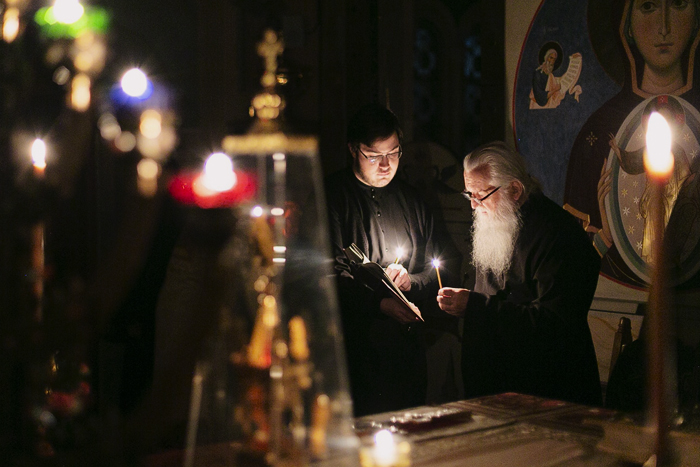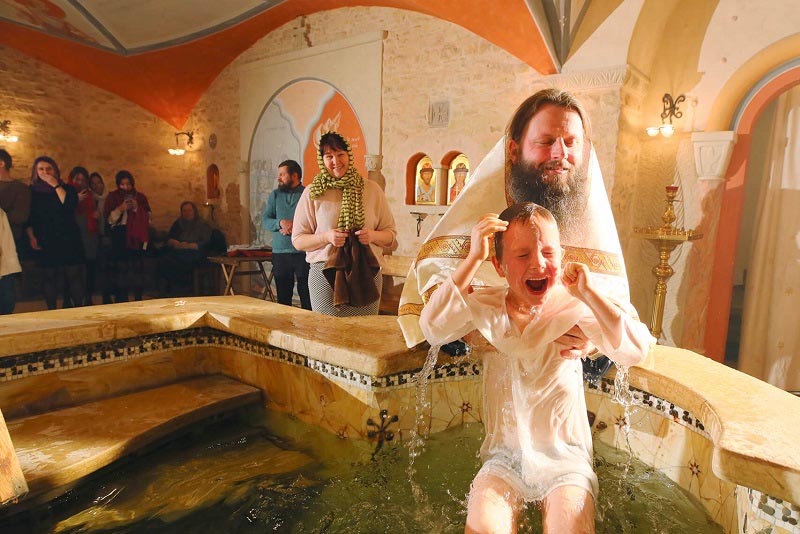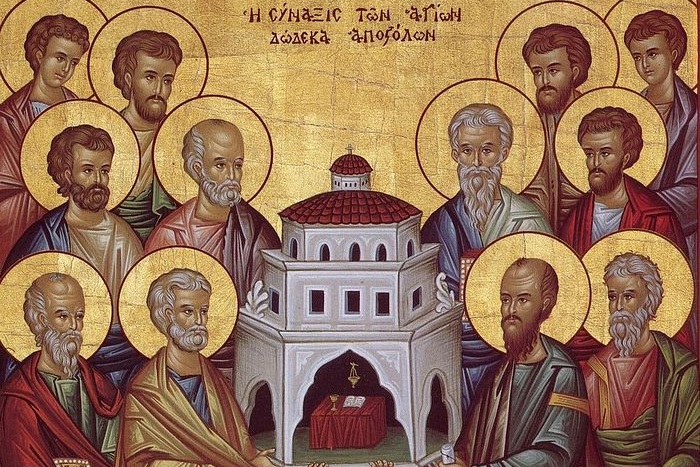
1. Communion of a large number of believers from the same chalice, kissing of the same Shrines contributed to the spread of epidemics.
In fact, nothing of the kind has been observed in history. The fact is that every time after the partaking of all parishioners, the priest or deacon themselves consume the Holy Gifts remained in the chalice. And if epidemics spread in this way, then the most vulnerable part of the population would be clergy. That is, they simply would have died out as class during the very first such epidemic even at the stage of its occurrence.
2. Holy water does not spoil over time because it is consecrated in a silver bowl and a silver cross is dipped into it. And silver ions are known to kill microorganisms and purify water.
Today allegations that holy water gains its properties through silver ions look very naive. In Soviet times, atheistic propaganda really used this “argument” to explain the amazing properties of consecrated water. Then the life of the Church was almost unknown to most people, so the absurdity of such an explanation was not obvious to everyone. Today, anyone can easily make sure that no silver bowls are used during consecration of water at church. And a silver cross is also a rarity these days. On this occasion, there is even such an anecdote: “How many silver ions are contained in a liter of consecrated Epiphany water, if consecration was performed in an ice hole cut in the ice of the Volga (as it usually happened before the revolution and is practiced today), in a place where the river width was 1 kilometer, the depth – 10 meters, the flow speed – 5 km/h, and the cross which the village father consecrated the water with was wooden?” The sanctification of water in the Sacrament of Baptism is done without any cross at all — just by the hand of a priest who blesses it with cross sign. Nevertheless, this water has all the properties that holy water can have.
3. Orthodox Christians can not engage in professional sports.
There is no ban on professional sports, of course. Many prominent Russian athletes profess Orthodoxy. Among them are world heavyweight boxing champion Nikolai Valuev, nine-time world champion in Greco-Roman wrestling Alexander Karelin, four-time world champion in mixed martial arts Fedor Emelianenko. All of them are living legends in the world of sports. But it also happened that athletes entered the Church Tradition as saints. Igor Roslyakov, international class master of sports and forward of the USSR national water polo team, was the most productive player in the team in its entire history. Upon becoming a Christian, he continued to train and participate in competitions. Here are the recollections of Oleg Zholobov, master of sports and his teammate: “…Igor fasted very strictly, and during the Great Lent this was seen from his ribs. The team was dissatisfied because of his fasting at first. He was the team’s leading and most successful player, and we were afraid to lose if he weakened. The next day we had a decisive final match. And how quickly Igor went on the attack, scoring and scoring goals! We won, and fast was justified in our eyes “… A few years later, Igor was tonsured a monk with the name Vasily in Optina Pustyn. And a few years later, the distraught Satanic maniac killed him with a ritual knife on the night after the Easter Liturgy. Hieromonk Vasily (Roslyakov) is not canonized by the Church yet, but many Orthodox people have come to his grave for some time now.
4. Each person always has a guardian angel behind his right shoulder, and a demon behind his left.
Such a distribution of angels in space is nothing more than an allegory. But each of us, indeed, has our own angel and our demon tempter. St. Gregory of Nyssa says: “When our nature fell into sin, God didn’t leave our fall by His Providence, and to help everyone’s life he appoints a certain Angel who received the ethereal nature. But on the other hand, the molester of nature (the devil) is clever on the same by means of some crafty and malevolent demon that would harm human life. A person himself, being among the angel and the demon, makes one stronger than the other, choosing a teacher from the two by his free will. The good angel pre-points good of virtues to thoughts, and the other shows material pleasures, from which there is no hope for good”.
5. The consecration of houses and cars acts like a magic ritual.
The consecration of houses, cars, and other things is of a fundamentally different, not magical, nature. Magic is a symbolic action through which a person tries to access the secret forces, believing that they are able to help him in solving any life problems. Typically, to the novice magician these forces seem to be simply hidden from the uninitiated to forces of nature, which can be subjugated and used to his advantage. But with a deeper acquaintance, it turns out that behind each of them lies a spirit, through contact with which a person receives supernatural opportunities. The Church calls these spirits nothing more than demons, that is, angels who fell away from God and became mortal enemies for man. And the church sacrament of the consecration of houses, cars, wells, ponds, and in general everything that a person comes into contact with in one way or another, is aimed primarily at protecting people from demonic harm. Saint John of Kronstadt wrote: “All nature, all elements are constantly polluted and corrupted by human sins and dark and crafty spirits living in the air and giving rise to all kinds of corruptive blowings and diseases in it. There is an urgent need for church consecration and healing of these elements”. The meaning of church consecration is the exact opposite of magic. This is not an attempt to subordinate the spiritual world to one’s needs, but a desire to understand what the will of God is, to find it and to subordinate your life to it.
Translated by The Catalogue of Good Deeds
Source: https://foma.ru/6-zabluzhdeniy-o-zhizni-v-tserkvi.html



